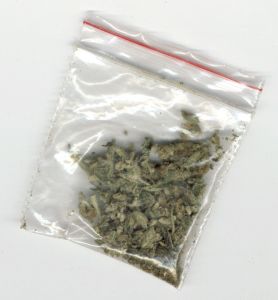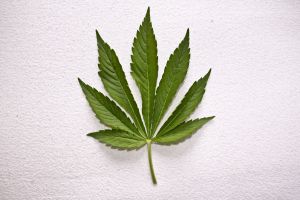 We have all heard of the term drunk driving, as DUI is one of the most common crimes in Maryland. In fact, DUI is one of the most common crimes in the entire country, as police make nearly 1.5 million DUI arrests per year in America. But what about drugged driving? Driving while under the influence of a drug such as marijuana is technically illegal in Maryland, but under Maryland law there are no definitive drug testing procedures for DUI. Under Maryland law you can be convicted of DWI with a blood alcohol concentration of .07 to .08, and for DUI with a blood alcohol concentration over .08. While these standardized numbers are somewhat arbitrary because everyone feels the effects of alcohol in different ways, the standardized numbers do provide at least the image of consistency and uniformity in DUI prosecutions. On the other hand, Maryland law does not indicate specific levels of drug concentration in the blood that would define driving while under the influence of drugs. If a police officer suspects someone is driving under the influence of drugs and not alcohol the officer can request the suspect to submit to a drug test. The question has been and will continue to be- what exactly do the results of a drug test tell us with respect to DWI?
We have all heard of the term drunk driving, as DUI is one of the most common crimes in Maryland. In fact, DUI is one of the most common crimes in the entire country, as police make nearly 1.5 million DUI arrests per year in America. But what about drugged driving? Driving while under the influence of a drug such as marijuana is technically illegal in Maryland, but under Maryland law there are no definitive drug testing procedures for DUI. Under Maryland law you can be convicted of DWI with a blood alcohol concentration of .07 to .08, and for DUI with a blood alcohol concentration over .08. While these standardized numbers are somewhat arbitrary because everyone feels the effects of alcohol in different ways, the standardized numbers do provide at least the image of consistency and uniformity in DUI prosecutions. On the other hand, Maryland law does not indicate specific levels of drug concentration in the blood that would define driving while under the influence of drugs. If a police officer suspects someone is driving under the influence of drugs and not alcohol the officer can request the suspect to submit to a drug test. The question has been and will continue to be- what exactly do the results of a drug test tell us with respect to DWI?
If a person is arrested for DWI and submits to a drug test a positive result will be used against that person in court, but that drug test really tells us very little about the person’s impairment at the time he or she was driving. Marijuana can stay in a person’s system for weeks, and thus a positive marijuana test would have little probative value in court and a huge prejudicial effect on the defendant. Even a positive cocaine test would offer little probative value in court, as cocaine can stay in the system for days. Why should a jury be entitled to see evidence that a DUI defendant tested positive for cocaine when the defendant took the cocaine 2 days prior to the DUI arrest? The same goes for prescription medications such as painkillers like oxycodone and Vicodin or anti anxiety pills like Xanax and Valium. At least one state is currently addressing this issue, as Colorado lawmakers are debating whether to pass a law that quantifies the amount of marijuana that a person can legally have in his or her blood in order to avoid a conviction for DUI.
Continue reading →
 Criminal Defense Lawyer Blog
Criminal Defense Lawyer Blog


 The Maryland Legislature recently passed a bill that will lower the maximum penalty for possession of marijuana from 1 year in jail to 90 days in jail. Maximum fines for marijuana possession will also drop from $1000 to $500. The bill was signed into law by Governor O’Malley and will go into effect in October of 2012. The Maryland marijuana bill only applies to simple possession of less than 10 grams of the plant, a compromise between the two legislative chambers. The Maryland Senate wanted the new bill to apply to possession of any amount less than 14 grams of marijuana, or one half ounce, but the Maryland House wanted reduced punishments only for less than 7 grams, or one quarter ounce of marijuana. The Maryland law makers eventually agreed on the 10 gram limit, and the bill easily passed both chambers by a vote of 41-5 in the Senate, and 92-31 in the House.
The Maryland Legislature recently passed a bill that will lower the maximum penalty for possession of marijuana from 1 year in jail to 90 days in jail. Maximum fines for marijuana possession will also drop from $1000 to $500. The bill was signed into law by Governor O’Malley and will go into effect in October of 2012. The Maryland marijuana bill only applies to simple possession of less than 10 grams of the plant, a compromise between the two legislative chambers. The Maryland Senate wanted the new bill to apply to possession of any amount less than 14 grams of marijuana, or one half ounce, but the Maryland House wanted reduced punishments only for less than 7 grams, or one quarter ounce of marijuana. The Maryland law makers eventually agreed on the 10 gram limit, and the bill easily passed both chambers by a vote of 41-5 in the Senate, and 92-31 in the House. A Maryland man was recently arrested for selling marijuana and other drugs from his ice cream truck according to police in Charles County. The alleged Maryland drug dealer was arrested based on a tip from Crime Solvers. The tip apparently informed police that the 20 year old man had been illegally selling packets of marijuana while at the same time legally selling frozen treats in southern Maryland neighborhoods. Police responded to the tip and sent a investigative unit to attempt to observe the ice cream drug dealer in action. Police investigative units apparently were not able to catch the Maryland man actually performing a hand to hand transaction with a would be marijuana buyer, but they were able to secure an arrest with the help of a canine police unit.
A Maryland man was recently arrested for selling marijuana and other drugs from his ice cream truck according to police in Charles County. The alleged Maryland drug dealer was arrested based on a tip from Crime Solvers. The tip apparently informed police that the 20 year old man had been illegally selling packets of marijuana while at the same time legally selling frozen treats in southern Maryland neighborhoods. Police responded to the tip and sent a investigative unit to attempt to observe the ice cream drug dealer in action. Police investigative units apparently were not able to catch the Maryland man actually performing a hand to hand transaction with a would be marijuana buyer, but they were able to secure an arrest with the help of a canine police unit. A Baltimore area marijuana dealer has been sentenced to over 20 years in prison after the jury found him guilty at trial. Defense lawyers were unable to overcome the strong evidence that federal prosecutors presented during two weeks of testimony in United States district court in Maryland. The convicted Baltimore drug dealer was arrested in 2010 and charged with distribution of marijuana and conspiracy to commit money laundering. Both the internal revenue service and the federal drug enforcement agency participated in the investigation, which ultimately let to a multi count indictment.
A Baltimore area marijuana dealer has been sentenced to over 20 years in prison after the jury found him guilty at trial. Defense lawyers were unable to overcome the strong evidence that federal prosecutors presented during two weeks of testimony in United States district court in Maryland. The convicted Baltimore drug dealer was arrested in 2010 and charged with distribution of marijuana and conspiracy to commit money laundering. Both the internal revenue service and the federal drug enforcement agency participated in the investigation, which ultimately let to a multi count indictment. Each year thousands of defendants are arrested in Maryland for possession of marijuana and other drugs such as cocaine and and prescription pills. The costs of enforcing Maryland marijuana laws and other drug laws were revealed in part one of this post. In part two we will discuss the possible positive effects of decriminalizing marijuana in Maryland.
Each year thousands of defendants are arrested in Maryland for possession of marijuana and other drugs such as cocaine and and prescription pills. The costs of enforcing Maryland marijuana laws and other drug laws were revealed in part one of this post. In part two we will discuss the possible positive effects of decriminalizing marijuana in Maryland. Each year Maryland police officers make thousands of drug arrests, costing hundreds of millions of taxpayer dollars, and yet there continues to be no visible evidence that the war on drugs is decreasing the amount of drug users in Maryland. Police officers focus a large portion of their time and effort making arrests for possession of cocaine, heroin, and prescription medication throughout Maryland, and especially in Baltimore City. Perhaps the most staggering data comes from the amount of marijuana arrests that Maryland cops make, and the money spent to make these marijuana arrests.
Each year Maryland police officers make thousands of drug arrests, costing hundreds of millions of taxpayer dollars, and yet there continues to be no visible evidence that the war on drugs is decreasing the amount of drug users in Maryland. Police officers focus a large portion of their time and effort making arrests for possession of cocaine, heroin, and prescription medication throughout Maryland, and especially in Baltimore City. Perhaps the most staggering data comes from the amount of marijuana arrests that Maryland cops make, and the money spent to make these marijuana arrests.